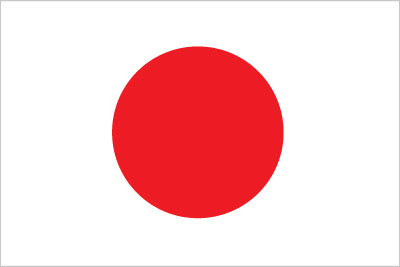
Where do Japanese people source Japanese ingredients from in Germany? Great commentary on food procurement routes in Germany
When Japanese people move to Germany, there are many things to do, such as procedures, commuting to work or school, and purchasing and organizing necessary items for living. Among them, one of the points that should not be forgotten is Japan's food procurement route.
When Japanese people move to Germany, they generally think about what kind of Japanese foods and ingredients to bring and take as much as possible, but it can be a big burden to bring liquids and heavy items. .
Unfortunately, no matter how much Japanese food you bring with you, it will eventually run out, and eventually you will need to procure ingredients locally.
This time, we will take a look at where Japanese people buy Japanese ingredients in Germany.
Where can you buy Japanese food in Germany? Japanese food procurement route
If you're staying in Germany for a short period of time, you don't have to think too much about ingredients, but for Japanese people who stay for a long time, food is one of the most important points in their lives.
In particular, Japanese people who live for more than half a year or a year spare no effort to buy Japanese food locally.
So where can Japanese people buy ingredients in the first place?
This is pretty much a pattern no matter where you live in Germany.
This is because the procurement routes for ingredients are inevitably limited.
1 : Local supermarket

Some Japanese foods are also available at supermarkets.
Small supermarkets do not carry foreign ingredients, but medium-sized supermarkets have an Asian section, where some Chinese and Japanese ingredients are placed.
In Japan, sushi roll sets (including japonica rice), gari, sushi vinegar for sushi, and soy sauce are the staples, and depending on the location, miso and teriyaki sauce may also be available.
However, you can't expect more handling than that except for large supermarkets, and the number of handling is basically not many.
Even when it comes to soy sauce, many places only sell Kikkoman's basic soy sauce and often don't carry other types of soy sauce.
Also, the price is often relatively high, and the point is that small bottles of soy sauce, in particular, are not economically viable for regular purchases.
2 : Japanese food store

After all, Japanese food stores have the largest variety of Japanese ingredients.
In areas where many Japanese live, such as Düsseldorf, Hamburg, and Berlin, you can access Japanese food stores.
Japanese families are looking for ingredients because they have many ingredients from Japanese food manufacturers, seasonings that are familiar to Japanese people, rice, miso, and Japanese sweets. Stability is excellent for
However, to put it the other way around, Japanese food stores are limited to areas where many Japanese live, big cities, and so on.
Also, due to the high quality of the food, the price of ingredients imported from Japan can be relatively high.
3 : Korean food store

South Korea is smaller than Japan and has a population of over 50 million people.
If the population is small, the number of Koreans living in Europe will naturally decrease, but many people are actively going abroad, and depending on the country or city, there are as many Koreans as there are Japanese. Sometimes there are.
In places where Koreans have expanded, Korean food stores and wholesalers of food ingredients have appeared in the area accordingly, and Japanese food ingredients are also sold.
In some countries, there are more Korean food stores than Japanese food stores, and there are also Korean food stores in places where there are no Japanese food stores.
There are similarities and differences between Japanese and Korean food.
The common point is that Japonica rice is the staple food and soy sauce is used, but the difference is that Korea has a lot of meat dishes and spicy food is preferred.
There are also similarities, such as large-sized japonica rice and soy sauce, udon, soba, curry roux, seaweed, and some seasonings such as wasabi, which are easy to handle.
In addition, instant noodles are a very familiar food to the common people in South Korea, but there is a tendency to prefer spicy food, and Korean instant noodles are basically all spicy, and Japanese instant noodles are handled. etc. is inevitably limited.
I can't say anything about the price, but Korean products tend to be the center of handling, and Japanese ingredients are sometimes set a little higher than Korean ingredients.
4 : Other Asian shops

Korean food stores are often expanding in urban areas, but there is still a limit.
Korean food stores are a relatively new Asian food store in Europe, and there are many traditional Chinese food stores and other Asian food stores in Germany and Europe.
Asian shops can be found not only in urban areas, but also in regional cities, and even people living in rural areas can easily access them.
There are overwhelmingly more stores than Japanese or Korean food stores, and there are large stores and Asian wholesalers in the whole area, so you can get various large and small products, foods, and ingredients. increase.
There are not only Chinese shops, but also Asian shops such as Vietnamese, and there are a wide variety of products that are completely unfamiliar to Japanese people and ingredients that we do not know the purpose of use.
There are relatively many Japanese foods, but among them, there are foods, sweets, and snacks produced in Asian countries by manufacturers you have never seen or heard of, so it's like a bit of a treasure hunt. element comes out.
The price is not very high, and in many cases it is cheaper than Korean or Japanese food stores. Other cases can also occur.
The best way to avoid mistakes here is to buy foods and seasonings that you know.
5 : Online shop

Online shops are a great way to access Japanese food ingredients, even if you live in the countryside or find it difficult to visit a physical store.
Our online shop also handles a variety of Japanese food ingredients, so you can shop without worrying about time or place.
In addition, if you spend 50 euros or more at our company, we can deliver free shipping within Germany. No need to worry about time and effort.
We have a wide range of products from general household use to commercial use, so please check it out and use it as a help for your home dining table.



